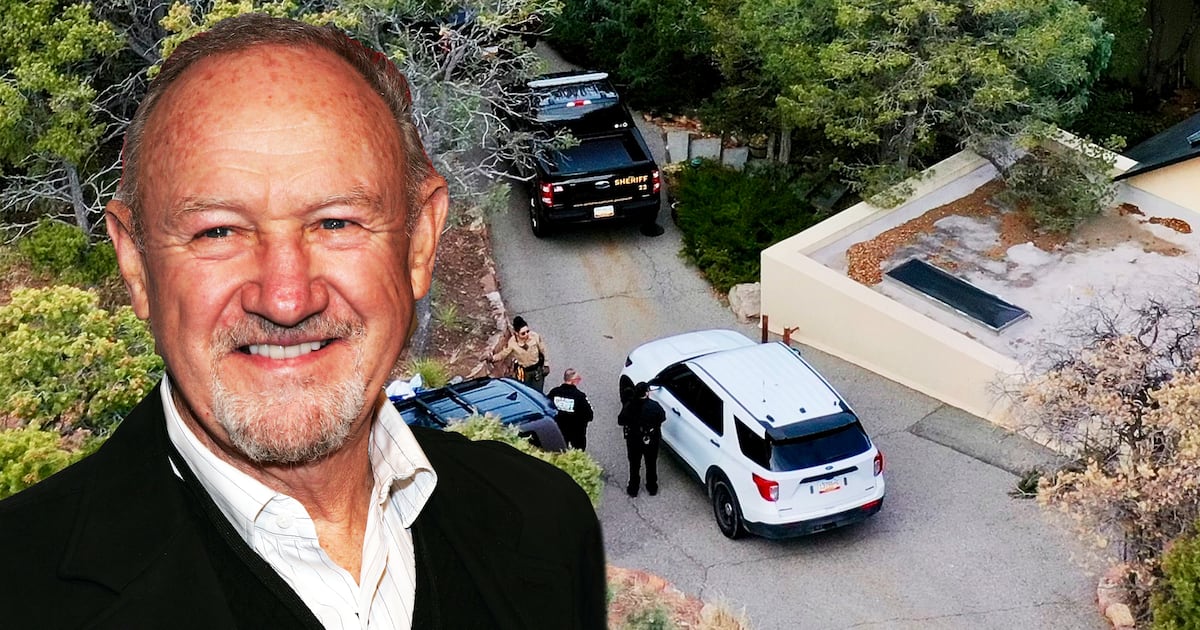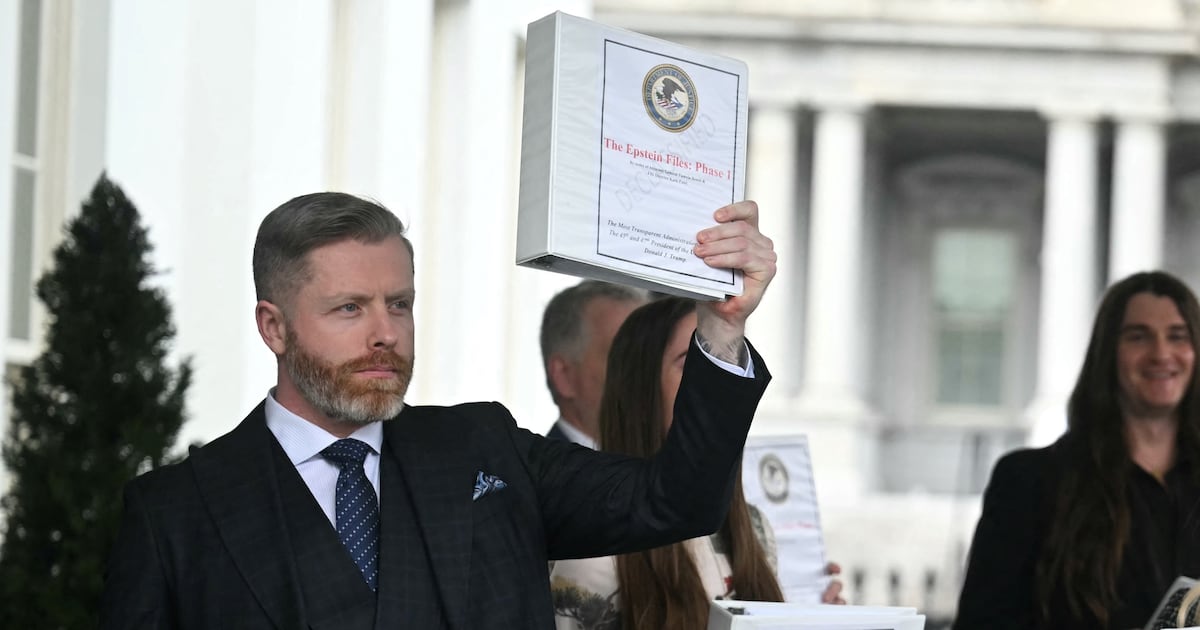In the early days of his flirtation with the GOP base, Donald Trump fired up conservative supporters to rally them to free former Marine Sgt. Andrew Tahmooressi from a Mexican jail.
It was one of the Republican nominee’s biggest causes back in 2014, and one that seems all-too-familiar now: a populist, off-the-hip messaging campaign, using forceful rhetoric to pressure Mexico. Trump hammered the point home on social media, and further capitalized on goodwill when Tahmooressi was freed by cutting a $25,000 check to his family.
But Trump’s bombastic efforts actually made it harder to free the jailed Marine, say two individuals who worked closely on the effort to free Tahmooreesi.
“The wave of anti-Mexico populism that sprung up on the U.S. side of the border over this case was very much not helpful. Whether it actually prolonged his confinement is unknowable,” said Jonathan Franks, who worked as the Tahmooressi family spokesman during the ordeal. “Getting people fired up for the sake of it isn’t strategically effective—one needs to get people fired up around a message that furthers the goal—those finer points of strategic communications seem utterly lost on Trump.”
It is an real-life illustration of the damaging effects of Trump's Twitter diplomacy—and a warning of how future negotiations might be undermined by a theoretical Trump White House.
The former Marine Corps sergeant served two tours in Afghanistan before returning home to the United States, diagnosed with PTSD. In the incident that would spark an ordeal lasting more than 200 days, he drove across the border from the United States to Mexico with three loaded guns in his car. While Tahmooressi insisted he had made a mistake, and had never intended to drive into Mexico, he was accused of violating Mexican law and jailed while awaiting the case’s disposition.
His case became a cause célèbre among the right in 2014, with Fox News’ Greta van Susteren leading the charge on cable news. On Twitter, Trump was building up his bona fides among the right in anticipation of what would become his presidential campaign in 2015.
Over the course of Tahmooressi’s imprisonment and release, Trump tweeted about the issue more than 20 times, berating the Obama administration for failing to secure the Marine’s freedom and supporting a boycott of Mexico.
Other celebrities were also working to untangle Tahmooressi from the Mexican legal system. Talk show host Montel Williams, himself a former Marine, became closely involved with the effort. Franks, his spokesman, became the spokesman for the Tahmooressi family during the ordeal.
“The problem was that Andrew’s case got conflated, by Trump and others, with other border-related issues like immigration, and that didn’t help because it was irrelevant, and only served to box in the Mexican government, who didn’t want to look like it was caving on its sovereign right to enforce its laws to please the Americans,” Franks told The Daily Beast. (He emphasized he was speaking only regarding his personal opinions, and not those of the Tahmooressi family.)
Republicans who were trying to free the former Marine advised their allies to not attack Mexico, and instead focus on the need for him to recover from PTSD and his lack of intent in breaking Mexican law.
“If you go to Mexico, you’ll see their flags are huge. They are very patriotic people who care about their sovereignty. We knew when this issue came up was that if we wanted to make any progress in getting him out… we had to appeal to the Mexicans as professionals appeal to them,” said a Republican strategist who worked intimately on the issue of Tahmooressi’s release. “Not be condescending, be deferential—it’s their country, their laws. That was our approach.”
The last thing those fighting for Tahmooressi’s release wanted to do was to polarize the issue and make it partisan; or antagonize Mexico, which held the key to the prison they were trying to release the former sergeant from.
Trump did the opposite, politicizing the issue by slamming the president; and arguing that the White House would “grant amnesty to millions of illegals” but had not “lifted a finger” for Tahmooressi.
“He only wants illegals to cross our border,” Trump sneered in one tweet. In another, he wrote, “Obama will let Ebola fly into US and drugrunners cross our border daily. But he won’t pressure Mexico on Sgt. Tahmooressi.” Trump indicated support for a boycott of Mexico, retweeting a supported who had posted a “No Marine? No Modelo” image.
“Calls for boycotts were ill-advised and foolish,” Franks said. “The fact remains that the Mexicans held the key to his jail cell, and they knew full well that calls for a boycott were puffery.”
Ultimately the Mexican Attorney General’s office withdrew the charges and the trial judge issued an acquittal, freeing Tahmooressi after 214 days in Mexican prison. It was Tahmooressi’s PTSD that swayed the judge’s final decision, Fox News reported at the time—meaning that it was the Mexican judge’s belief in the essential humanitarian nature of the release that won Tahmooressi his freedom.
“What mattered here was that Andrew was a veteran, diagnosed with PTSD several days prior, who got confused and never intended to enter Mexico at all, much less armed. That message was digestible in Mexico because their legal system heavily values rehabilitation,” Franks said.
The Tahmooressi family declined to comment for this story. The former Marine was recently jailed for for possessing marijuana, and the family, aside from confirming it had received $25,000 from Trump, wants to avoid any public controversy.
The Trump campaign declined to comment on this criticism, but the Tahmooressi case matters because it shows the Republican nominee’s instincts on foreign policy—which from the GOP standpoint are the complete opposite of President Obama’s.
“You have the current [Obama] administration: deferential, apologetic and leading from behind—[Trump] would represent a complete pendulum shift to the other side… Bluster for the sake of domestic politics and not thinking about how that can have consequences for what you’re trying to accomplish,” said a Republican strategist who had worked on Tahmooressi’s release. “It would represent the opposite extreme… neither of which is good.”






